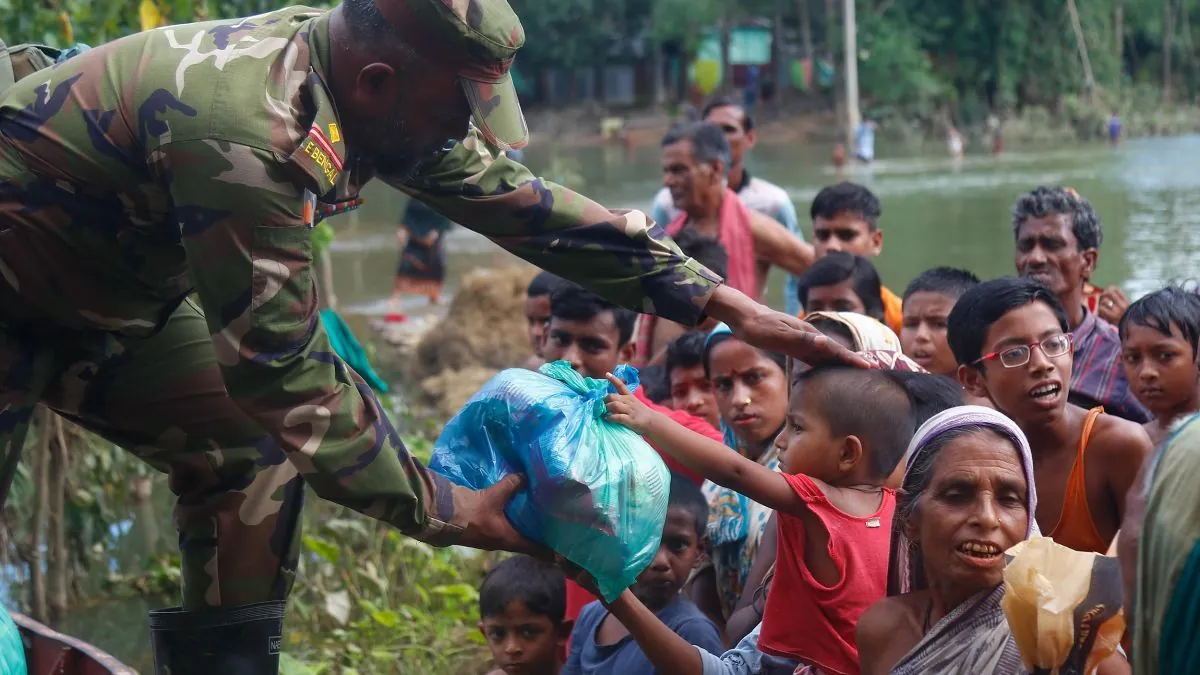In the aftermath of devastating floods that struck Bangladesh last week, authorities are now confronting the challenge of preventing waterborne diseases while striving to provide essential aid to affected populations. The floods, which claimed at least 54 lives and left millions stranded, have prompted a significant humanitarian response in one of the world's most densely populated countries.
Bangladesh, situated on the Ganges-Brahmaputra Delta, is particularly susceptible to flooding due to its geographical location and tropical monsoon climate. The country, home to over 165 million people, experiences heavy rainfall from June to September, exacerbating its vulnerability to natural disasters.
The Bangladesh Meteorological Department has warned that flood conditions may persist if monsoon rains continue, as water levels are receding slowly. This prolonged inundation poses a significant threat to crops and agriculture, a sector crucial to the nation's economy.
In response to the crisis, approximately 470,000 individuals have sought refuge in 3,300 shelters across 11 flood-affected districts. The government has deployed 600 medical teams to provide treatment, with the army, air force, navy, and border guard assisting in rescue operations.
A disaster management ministry official emphasized the urgent need for clean water to prevent disease outbreaks. In the past 24 hours alone, around 3,000 people have been hospitalized due to waterborne illnesses in flood-hit areas, according to the Directorate General of Health Services.
"Water is everywhere but there is no clean water to drink. People are getting sick."
The United Nations Children's Fund (UNICEF) has issued a warning that two million children are at risk as these floods, considered the worst in three decades, sweep through eastern Bangladesh. The organization is urgently appealing for $35 million to provide life-saving supplies.
Emma Brigham, Deputy Representative of UNICEF Bangladesh, stated, "The devastating floods in eastern Bangladesh are a tragic reminder of the relentless impact of extreme weather events and the climate crisis on children."
Bangladesh's vulnerability to climate change is well-documented. A 2015 World Bank Institute analysis estimated that 3.5 million people in the country were at risk of annual river flooding. Scientists attribute the intensification of such catastrophic events to global climate change.
Despite contributing minimally to global emissions, Bangladesh faces disproportionate impacts from climate-related disasters. Farah Kabir, director of ActionAid Bangladesh, emphasized the urgent need for funding to help countries like Bangladesh recover from climate-related losses and build resilience for future impacts while pursuing sustainable development pathways.
As Bangladesh continues to grapple with the immediate aftermath of the floods, the country's long-term challenges in addressing climate change and disaster preparedness remain critical. The nation's efforts to achieve the UN Sustainable Development Goals and its progress in reducing poverty in recent decades are now facing significant setbacks due to these recurring natural disasters.
